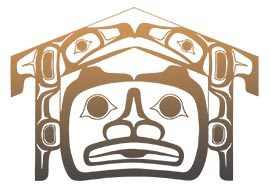
We are participating in Climate Action Week from November 17-21! We’ve curated a list of resources based on Indigenous wisdom, knowledges, and solutions to the climate crisis. Additionally, we have an in house display with more resources from our collection.
| Confronting climate change with Indigenous wisdom and Western science
https://resolve.library.ubc.ca/cgi-bin/catsearch?bid=13631572 |
As author Glen Aikenhead demonstrates, Indigenous people who follow their culture are a major part of avoiding a serious tipping point in the future. Here he calls for pervasive and organized collaboration between working groups of Indigenous and Eurocentric non-Indigenous workers. | |
| Challenge to civilization : Indigenous wisdom and the future
https://resolve.library.ubc.ca/cgi-bin/catsearch?bid=13628891 |
Reinterpreting world history from an Indigenous perspective, Stonechild’s solution to this unfolding catastrophe is “ecolization,” a state in which humans recognize they are not the central purpose of creation and a way of existing harmoniously with the natural and spiritual worlds. Beautifully written, urgent, and critical, Challenge to Civilization reminds us that it is not Earth that is in danger of extinction, but ourselves, and Indigenous spiritual wisdom can be the guiding light through what will otherwise be humanity’s final, ever-darkening days. | |
| Aboriginal power : clean energy & the future of Canada’s First Peoples
https://resolve.library.ubc.ca/cgi-bin/catsearch?bid=9098489 |
This book’s engaging message to Canada’s decision-makers, politicians, corporate heads, senior public officials and Aboriginal leaders is: Read this book; make the best practices described commonplace, and act on the innovative actions proposed. | |
| The first astronomers : how indigenous elders read the stars
https://resolve.library.ubc.ca/cgi-bin/catsearch?bid=12785773 |
Guided by six First Nations Elders, Duane Hamacher takes us on a journey across space and time to reveal the wisdom of the first astronomers. These living systems of knowledge challenge conventional ideas about the nature of science and the longevity of oral tradition. Indigenous science is dynamic, adapting to changes in the skies and on Earth, pointing the way for a world facing the profound disruptions of climate change. | |
| he end of this world : climate justice in so-called Canada
https://resolve.library.ubc.ca/cgi-bin/catsearch?bid=12784874 |
In this compelling roadmap to a livable future, Indigenous sovereignty and climate justice go hand in hand. Drawing on their work in Indigenous activism, the labour movement, youth climate campaigns, community-engaged scholarship, and independent journalism, the six authors challenge toothless proposals and false solutions to show that a just transition from fossil fuels cannot succeed without the dismantling of settler capitalism in Canada. | |
| Whale snow : Iñupiat, climate change, and multispecies resilience in arctic Alaska
https://resolve.library.ubc.ca/cgi-bin/catsearch?bid=12374865 |
Chie Sakakibara shows how knots of connection came into being between humans and nonhuman others and how such intimate and intense relations will help humans survive the Anthropocene. Whale Snow offers an important and thought provoking look at global climate change as it manifests in the everyday life of the Iñupiat in Arctic Alaska. | |
| Changing tides : an ecologist’s journey to make peace with the anthropocene
https://resolve.library.ubc.ca/cgi-bin/catsearch?bid=13628838 |
In Changing Tides, Alejandro Frid, an ecologist working with Indigenous people, argues that a merger of scientific perspectives and Indigenous knowledge might just help us change the story we tell ourselves of who we are–of who we can be–and steer us towards a more benign Anthropocene. | |
| Resurgence and reconciliation : Indigenous-Settler relations and earth teachings
https://resolve.library.ubc.ca/cgi-bin/catsearch?bid=9846555 |
Resurgence and Reconciliation is multi-disciplinary, blending law, political science, political economy, women’s studies, ecology, history, anthropology, sustainability, and climate change. Its dialogic approach strives to put these fields in conversation and draw out the connections and tensions between them. By using “earth-teachings” to inform social practices, the editors and contributors offer a rich, innovative, and holistic way forward in response to the world’s most profound natural and social challenges. |
Our branch has an Indigenous Land Based Activism research guide to support additional research.
There are many branches of UBC Library that are participating in CAW 2025! For resources from other branches and ways to get involved see here. Libraries are very active in this topic, the BC Library Association gathers many libraries, archives, museums, and more to raise awareness; learn more by visiting here.
